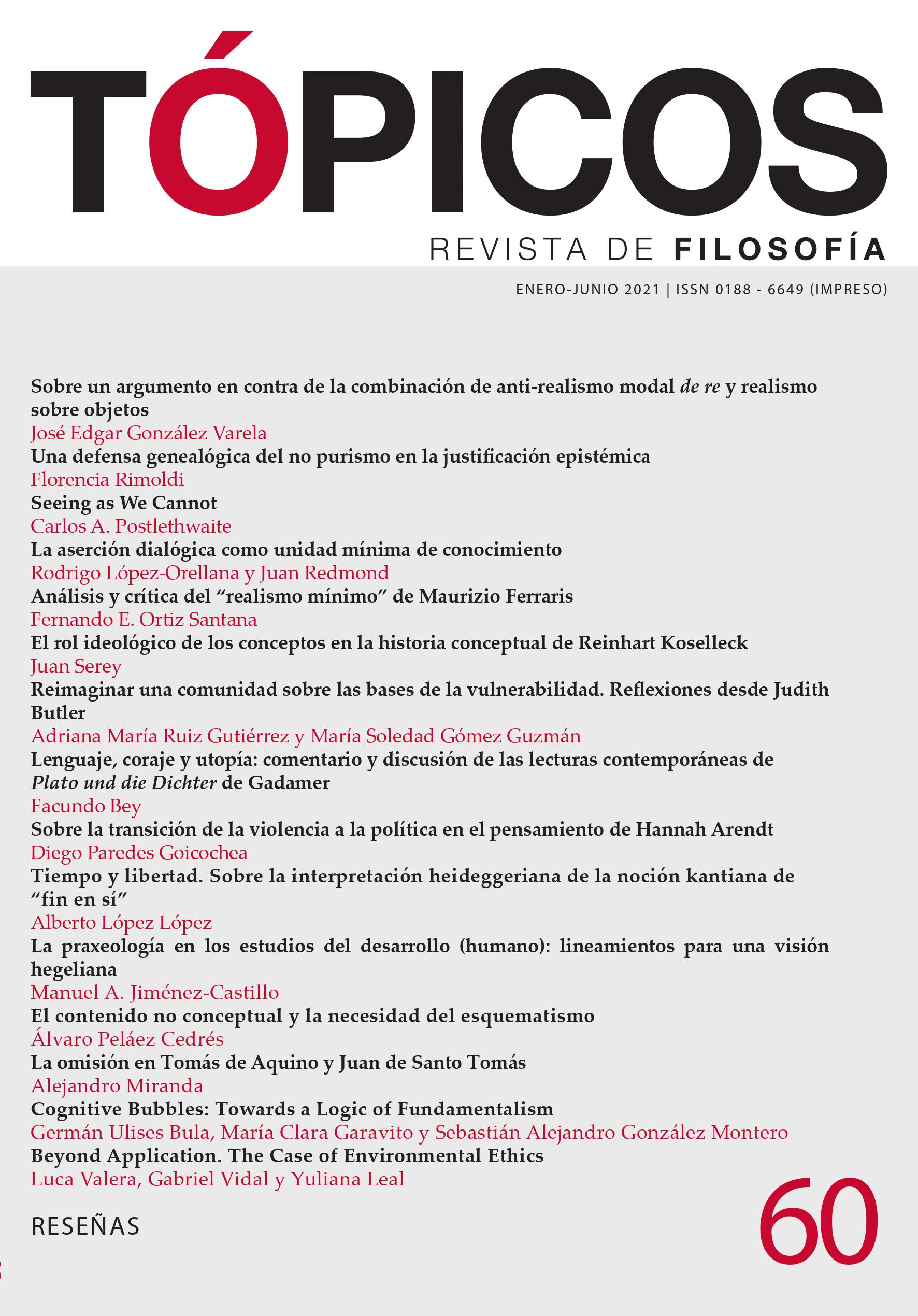Praxeology in (Human) Development Studies: Guidelines For A Hegelian Perspective
Published 2020-10-27
Keywords
How to Cite
Downloads
Altmetrics
Citas
Abstract
Addressing the study of human action from Mises’s perspective of the praxeological method is in itself highly controversial. Particularly, if it attempts to identify the ultimate basis of human development, it will face unmanageable problems in analytical and normative terms. The incapability to withdraw from the socalled self-evident judgments comes together with the refusal of the elements that address its operability. Dependent of a soft well-being concept (unauthorized to distinguish action from performance), it is unable to establish interpersonal comparisons, and this in turn frustrates any kind of attempt to design a convincing social justice theory. A Hegelian perspective brings order to and improves both the moral and the operability dimension of the praxeological interpretation of economics.
References
- Bowles, S. y Gintis, H. (2007). Cooperation. Versión del manuscrito previa a la publicación.
- Bunge, M. (1996). Finding Philosophy in Social Science. Yale University Press.
- Cejudo Córdoba, R. (2007). Capacidades y libertad: una aproximación a la teoría de Amartya Sen. Revista Internacional de Sociología, 65(47), 9-22.
- Chapman, H. (1953). Realism and Phenomenology. En J. Wild (ed.), The Return to Reason. (pp. 3-35). Harvard University Press.
- Colmenarejo, R. (2016). Enfoque de capacidades y sostenibilidad: aportaciones de Amartya Sen y Martha Nussbaum. Ideas y valores, 65(160), 121-149.
- Dinerstein, A. y Deneulin, S. (2012). Hope Movements: Naming Mobilization in a Post‐development World. Development and Change, 43(2), 585-602.
- Gil Calvo, E. (1994). La hipótesis del rol egoísta. Límites de la teoría de la elección racional. En E. Lamo de Espinosa y J. E. Rodríguez Ibáñez (eds.), Problemas de la teoría social contemporánea. Centro de Investigaciones Sociológicas.
- Hegel, G. W. F. (1999). Fenomenología del espíritu. Fondo de Cultura Económica.
- Hegel, G. W. F. (2004). Lecciones sobre la filosofía de la historia universal. Alianza Ensayo.
- Hegel, G. W. F. (2017a). Enciclopedia de las ciencias filosóficas. Abada Editores.
- Hegel, G. W. F. (2017b). Fundamentos de la filosofía del derecho. Tecnos.
- Hoppe, H.-H. (1987). La ciencia económica y el método austriaco. Unión Editorial.
- Jiménez-Castillo, M. A. (2016). Amartya Sen frente al espejo social de la libertad. Revista internacional de sociología, 74(3), e038.
- Jiménez-Castillo, M. A. (2017). Una arqueología hegeliana de las teorías del desarrollo. Cinta de Moebio. Revista de epistemología de ciencias sociales, 59, 186-197.
- Kojève, A. (2013). Dialéctica de lo real y la idea de la muerte en Hegel. Leviatán.
- Mises, L. von. (1986). La acción humana. Unión Editorial.
- Mises, L. von. (2012). Los fundamentos últimos de la ciencia económica. Unión Editorial.
- Nussbaum, M. (2002). Las mujeres y el desarrollo humano. El enfoque de las capacidades. Herder.
- Nussbaum, M. (2012). Crear capacidades: propuestas para el desarrollo humano. Paidós Ibérica.
- Rawls, J. (1972). A Theory of Justice. Harvard University Press.
- Rothbard, M. N. (1976). Praxeology, Value Judgments and Public Policy. En E. G. Dolan (ed.), The Foundations Of Modern Austrian Economics. (pp. 89-114). Sheed & Ward.
- Scarano, E. (2004). El apriorismo de Ludwig von Mises. Revista de Instituciones, Ideas y Mercado. Libertas, 40, 1-16.
- Sen, A. (1999). Developemt as Freedom. Oxford University Press.
- Sen, A. (2002). Rationality and Freedom. Harvard University Press.
- Sen, A. (2009). The Idea of Justice. Harvard University Press.
- Smith, V. L. (1999). Reflections on Human Action after 50 Years. Cato Journal, 19(2), 195-214.
- Zak, P. J., Stanton, A. A. y Ahmadi, S. (2007). Oxytocin Increases Generosity in Humans. PLOS One, 2(11), e1128.
- Zanotti, G. (2004). Fundamentos filosóficos y epistemológicos de la praxeología. Tesis doctoral. Universidad del Norte Santo Tomás de Aquino.






